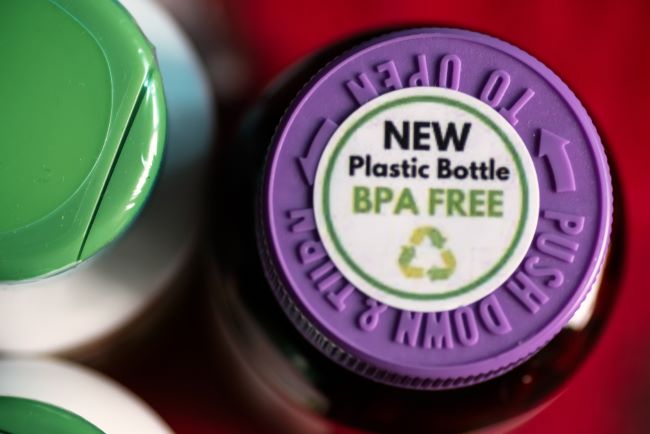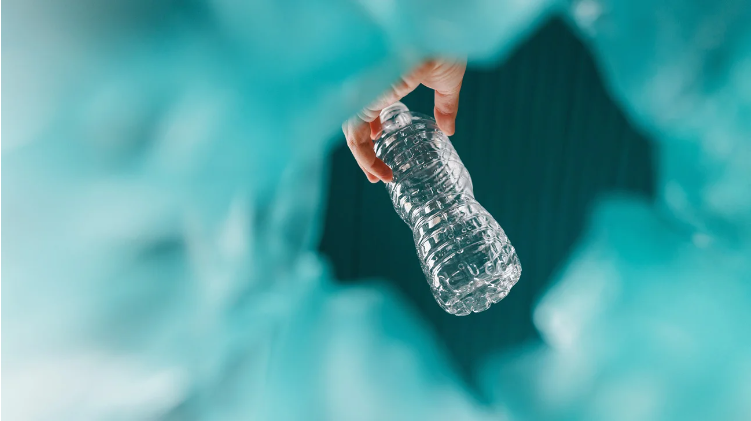SINGAPORE: Look at the bottom of any reusable plastic container or bottle you have bought in recent years, and it is likely you will see a label declaring it “BPA-free”.
Safety First: Water bottles made by BPA-Free materials Is Truly safe?
What is BPA
Bisphenol A (BPA) is a chemical added to many commercial products. It is commonly used as a monomer in the synthesis of polycarbonate, a plasticizer in the production of epoxy resins, and in the production of polyvinyl chloride (PVC). Additive to eliminate excess hydrochloric acid. Bisphenol A is mixed with other compounds to produce strong and elastic plastics. It’s found in a variety of products, including shatterproof windows, eyeglasses, water bottles, and the epoxy resin that coats some metal food cans, bottle caps and water pipes.
How BPA enters the body
BPA can be exposed to BPA in a variety of ways, such as orally, inhaled, or through the skin, the most important of which is ingestion. When food or liquid is added to a container containing BPA, a portion of BPA is emitted and mixed with the contents of the container, and heating or microwave cooking is more conducive to BPA mixing with food. Bisphenol A ingested into the body is metabolized in the liver to form bisphenol A-glucuronate, which is excreted in the urine.
A recent study found that after three days of participants avoiding packaged foods, their urine levels dropped by 66%. Another study found that people who drank canned soup had 1,221 percent more BPA in their urine than those who didn’t.
In addition, WHO reports that BPA levels are 8 times lower in breastfed infants than in infants fed formula containing BPA.

Is BPA safe?
In August 1998, Dr. Patricia Hunt, a geneticist, made a peculiar observation while examining the ovaries of mice in her study. Remarkably, the occurrence of chromosomal errors in the control group mice surged from a mere 2 percent to a staggering 40 percent. These abnormalities ultimately resulted in miscarriages and birth defects. Investigating further, Dr. Hunt identified the culprit behind this distressing phenomenon: BPA, a chemical compound
Upon conducting additional tests, Dr. Hunt discovered that the presence of BPA was pervasive in the mice cages and water bottles, having leached out from the polycarbonate plastic. As she replaced the contaminated plastics, the cells in the mice returned to their normal state. This groundbreaking research highlighted the detrimental impact of BPA exposure on the fetal development of mice, including the eggs responsible for the subsequent generation.
Since this pivotal discovery, Dr. Hunt and fellow researchers have grown increasingly convinced that BPA poses a significant concern not only for mice but also for human beings.
The impact of BPA on human health
Effects on the Reproductive Endocrine System: BPA has a similar structure to estrogen, allowing it to interact with estrogen receptors and affect the endocrine system. This interaction can lead to various endocrine diseases, including female and male infertility, precocious puberty, hormone-dependent tumors like breast and prostate cancer, and polycystic ovary syndrome (PCOS). Additionally, BPA exposure has been linked to metabolic disorders and other health issues.
Increased Risk of Obesity and Type 2 Diabetes: BPA can disrupt the normal secretion of insulin by pancreatic islet beta cells and promote the secretion of glucagon by pancreatic islet alpha cells. These disruptions can result in an imbalance of lipids and glucose, leading to obesity and an increased risk of type 2 diabetes. While exposure to BPA at any age may contribute to obesity, prenatal, infancy, and childhood stages are particularly sensitive to its effects.
Other Health Concerns: In addition to the reproductive and metabolic effects mentioned above, exposure to BPA has been associated with an increased risk of high blood pressure and heart disease. A survey conducted on 1,455 Americans revealed that individuals with higher levels of BPA in their bodies had an elevated risk of heart disease ranging from 18% to 63%. Furthermore, BPA may contribute to the development of asthma, abnormal liver enzyme levels, and autoimmune diseases.

BPA-free plastic materials do exist, and they are widely used in the manufacturing of various products, including water bottles. Manufacturers have developed alternative plastics that don’t contain BPA but still offer similar benefits and functionality.
One commonly used BPA-free plastic is called Tritan™. Tritan™ is a clear, durable, and impact-resistant plastic that is free from BPA and other potentially harmful chemicals. It has gained popularity in the industry as a safe and reliable alternative to traditional plastics.
Another BPA-free plastic material is polyethylene terephthalate (PET). PET is a lightweight, transparent, and recyclable plastic commonly used for food and beverage packaging, including water bottles. It is considered safe for use and doesn’t contain BPA.
When choosing BPA-free plastic materials, it’s crucial to ensure that they meet regulatory standards and undergo necessary testing for safety and quality. Reputable manufacturers and brands prioritize consumer health and provide transparent information about the materials used in their products.
BPA-free materials

Are water bottles made by BPA-free materials expensive?
Fortunately, in response to growing concerns about BPA, many manufacturers have developed BPA-free water bottles that provide a safer alternative. These BPA-free options are readily available in the market and come in a variety of styles, sizes, and materials. Importantly, the cost of these BPA-free water bottles is comparable to that of water bottles containing BPA. Consumers can enjoy the peace of mind that comes with using a BPA-free product without having to pay a premium price. So, whether you’re looking for a reusable water bottle for your daily hydration needs or an eco-friendly option to reduce single-use plastic waste, you can easily find a BPA-free water bottle that fits your preferences and budget.
Are water bottles made by BPA-free materials really safe?
Absolutely! BPA-free water bottles are carefully crafted to meet regulatory standards and undergo rigorous testing to ensure their safety and quality. You can rest assured that the BPA-free water bottles we manufacture are designed with consumer health and safety as top priorities.
Whether BPA-free materials affect the durability and reliability of the water bottles
Fear not! Our manufacturing process ensures that the BPA-free materials we use are of the highest quality. Through our meticulous sorting and cleaning process, we remove any impurities and ensure that the BPA-free materials meet our stringent standards. The end result? Sturdy, reliable water bottles that are built to last.
Competitive advantages for wholesalers of water bottles using BPA-free materials
By offering BPA-free water bottles, you’re tapping into a growing market demand for eco-friendly products. Consumers are becoming increasingly conscious of their environmental footprint and actively seek out brands that align with their values.
When it comes to BPA-free water bottles, the surprising reality is that not all manufacturers prioritize sustainability and recycling. But that’s where we stand out. Our expertise lies in creating water bottles using recycled materials, which helps reduce waste and conserve valuable resources.
By utilizing recycled materials, we play a vital role in reducing the demand for virgin plastic. This means less reliance on fossil fuels and a smaller carbon footprint. Plus, recycling materials saves energy and reduces greenhouse gas emissions, contributing to a healthier environment for all.
But it’s not just about the environment. Our recycled bottles are carefully crafted to meet the highest quality standards. We understand that consumers expect durable, reliable, and safe products. That’s why we ensure that our BPA-free water bottles not only meet regulatory standards but also exceed customer expectations.
Our manufacturing process begins with sourcing high-quality recycled materials. These materials undergo a meticulous sorting and cleaning process to ensure they meet our stringent quality control measures. We then use state-of-the-art technology and advanced techniques to transform these materials into durable, stylish, and eco-friendly water bottles.
By partnering with us, a specialized manufacturer of recycled BPA-free bottles, you can differentiate yourself from the competition and attract a loyal customer base.
Let’s raise your business to the next level, NOW! →
Please get in contact with us if you’re ready to take the next step in your cross-border trading journey. We’re here to help you sort through the intricacies of logistics.

